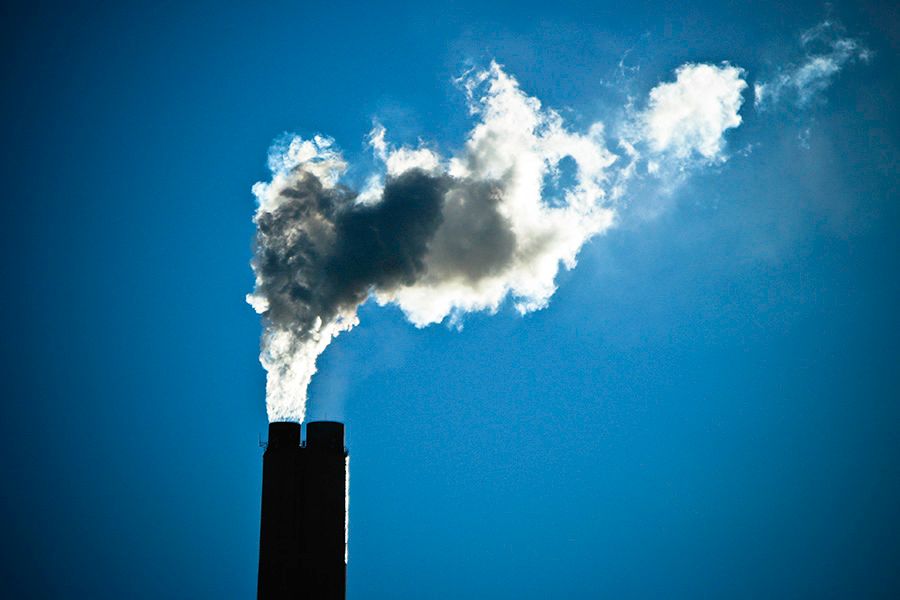Due to long term shifts in temperatures and weather patterns, the livelihood of those that occupy the Earth has been compromised in a myriad of ways — air quality has worsened, infectious disease rates have increased and droughts are more prominent than ever.
Despite climate change being a sizable challenge facing communities worldwide, researchers are already devising potential solutions. At Tech, administration is doing its part to acknowledge this global issue by emphasizing the importance of sustainability on campus.
More specifically, the Institute has announced their commitment to addressing climate change by launching a Climate Action Plan. Its development began in 2022 and the plan will be put into place this year.
According to a press release from the Institute, the plan “will include developing a greenhouse gas inventory, modeling potential mitigation strategies and engaging with faculty, students and staff from across campus.”
The specific campus groups they intend on engaging with include the Office of Sustainability and the Sustainability Task Force. As for outside sources, consulting teams possessing knowledge on both climate change and the workings of universities will help to execute the plan after its completion this year.
The proposal is divided into two multifaceted parts. As stated by the Campus Sustainability team, the first section involves “[formulating] a carbon neutrality implementation plan for the Institute … [with] recommended solutions specific to how the Institute may reach [these] goals.”
Next, they will create “action plans to advance Georgia Tech’s role as a leading academic and research institute, and action plans centered on climate equity and community resiliency.”
Students can track the Institute’s progress on these two objectives by referring to the Sustainability Tracking, Assessment and Rating System (STARS).
These goals exist to supplement Tech’s broader initiatives, like the Sustainability Next Plan task force, and by extension their larger aspiration to be carbon neutral by 2050. The task force aims to “propose a strategic plan implementation roadmap for sustainability at [Tech] over the next 10 years.”
Some students are weary about the plausibility of the carbon neutrality goal set forth by the Institute. Among the student perspectives was a general theme of concerns regarding implementation of the long-term sustainability initiatives.
Specifically, fifth-year BIOS student, Rachel Chin said, “There are so many programs in place — specifically carbon credits — that do not work to curb the effects of climate change but instead are PR moves made by companies and institutions which instead act as a license to pollute.”
Echoing Chin’s sentiments, fifth-year EE student Salmata Barrie emphasized her skepticism over the feasibility of such an initiative, stating, “I would truly be interested in seeing the plan outlined by the Institute and hope that we could get there by 2050 by implementing innovative changes that set the university as well as the U.S. on the best path towards fighting climate change. ”
To obtain this end result, the new interdisciplinary Sustainability Next Plan focuses on six different areas: Institute Operations, Education for Sustainable Development, Leading Sustainability Research, Culture and Organization, Climate Solutions and the Living Learning Lab.
Focus area one, Institute Operations, focuses on campus establishments and “ensures responsible stewardship of resources.”
For instance, a way of improving upon this area may look like increasing composting activity throughout campus or providing Tech constituents with free MARTA passes to decrease emissions.
As mentioned earlier, the second focus area is Education for Sustainable Development. This objective showcases the Institute’s desire to generate students who are passionate about pursuing endeavors that encourage and champion sustainability.
This is being done by expanding education and conversation around climate change. Tech hopes that, by embedding sustainability into course content, students will be better prepared to solve these sorts of problems in their future careers.
Focus area three, Leading Sustainability Research, relies upon the research facilities offered at the Institute. As a leading academic and research institution, Tech plans on increasing the scale of their climate exploration. This will encourage other similar universities to follow.
Focus area four, Culture and Organization, hones in on the environment that the Institute has created thus far for its community. Those in charge of the Sustainability Task Force hope to encourage students, professors and faculty to “[bike] to work, [incorporate] the United Nations Sustainable Goals into classroom conversations and [ensure] that sustainability data is shared and collected around campus.”
Focus area five, referred to as Climate Solutions, is the basis of the Climate Action Plan. This objective is where administrative figures plan aim for the reduction of greenhouse gas emissions by over half and the attainment of carbon neutrality. Lastly, Tech’s Campus Sustainability website depicts focus area six as making “campus [a] testbed for groundbreaking technologies and climate solutions in action” – revealing why it is being referred to as a “Living Learning Community”.
A clear-cut instance of campus being shifted into a hub for sustainable design is the living Kendeda Building. This building has proven Tech’s desire to lead by example, as “it is the 28th worldwide to earn the Living Building Certification.” The Institute hopes to construct similar establishments in the future.
All in all, according to Tech’s Campus Sustainability Next website, “[they are] committed to implementing the Sustainability Next Plan by allocating $1.25 million in support of plan initiatives and [are] actively crafting a governance structure to ensure plan progress. The Sustainability Next Task Force is additionally connecting with the Georgia Tech Capital Campaign to further plan development.” Only time will tell what direction the Institute moves towards next.
